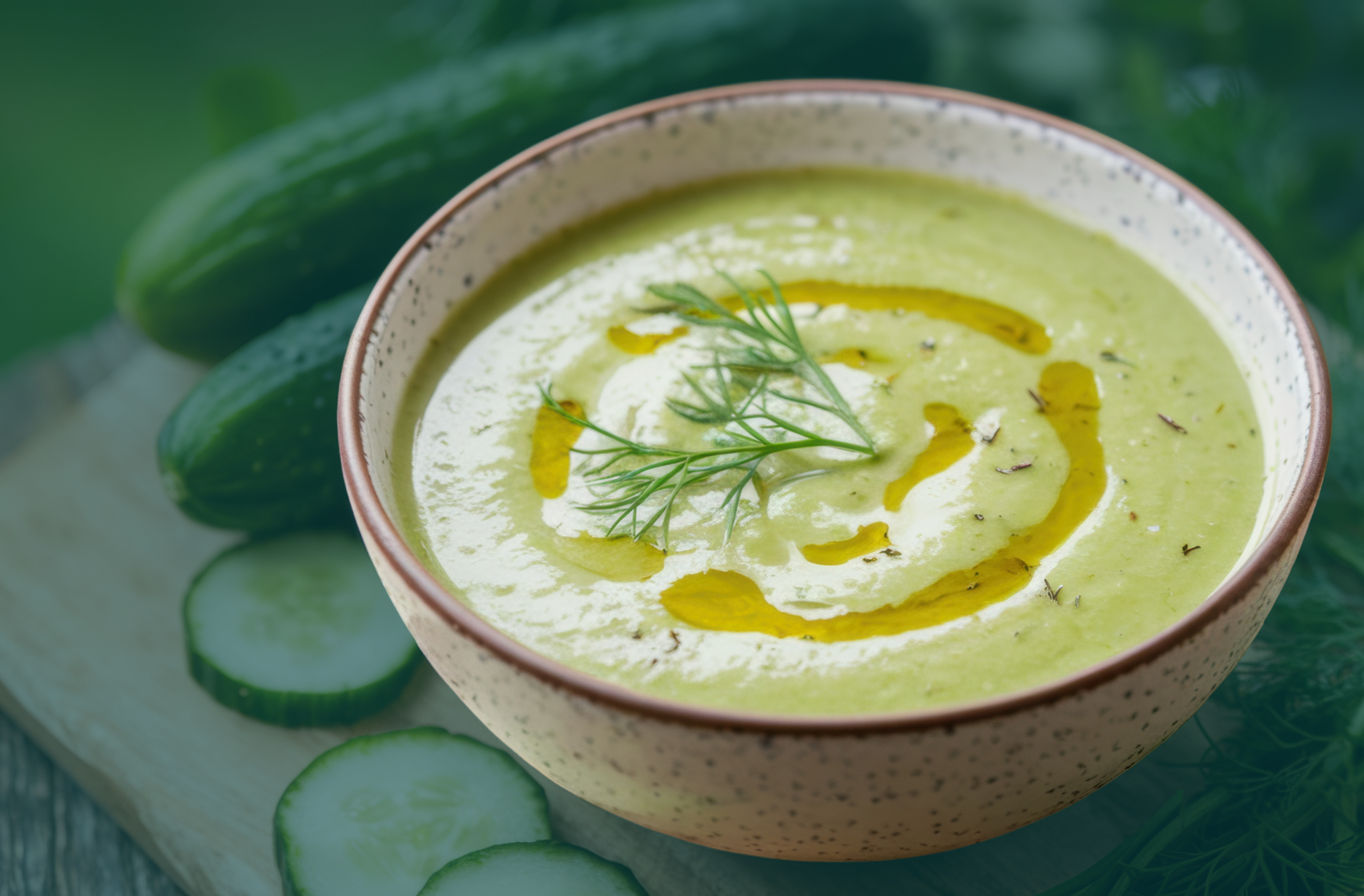When hot flushes combine with summer heat, staying cool becomes a top priority. While no single food can eliminate hot flushes, research shows that certain ingredients and eating patterns may help manage their frequency and intensity. We’ve gathered cooling, nutritionist-approved recipes that not only taste delicious but may help you stay comfortable during the warmer months.
Understanding Food’s Impact on Hot Flushes
Before we dive into the recipes, it’s helpful to understand how different foods can affect body temperature and hot flushes. Research has shown that certain foods and eating patterns may:
- Help regulate body temperature
- Support hormone balance
- Reduce inflammation
- Provide cooling hydration
Recipe Principles for Hot Flush Management
Our recipes follow these evidence-based guidelines:
- Rich in plant-based compounds
- Low in trigger ingredients like caffeine and alcohol
- High in cooling nutrients
- Focus on hydrating ingredients
- Easy to prepare in advance
- Minimal cooking heat required
Cooling Breakfast Options
Overnight Cooling Oats
Prep time: 10 minutes + overnight soaking
This breakfast combines oats (rich in beta-glucans for hormone balance) with cooling ingredients.
Ingredients:
- 1/2 cup rolled oats
- 1 cup coconut milk
- 1 tablespoon chia seeds
- 1/2 cup mixed berries
- 1 tablespoon mint leaves
- Optional: 1 teaspoon honey
Method:
- Combine oats, coconut milk, and chia seeds
- Refrigerate overnight
- Top with berries and fresh mint
- Add honey if desired
Cooling Green Smoothie Bowl
Prep time: 5 minutes
Packed with hydrating ingredients and temperature-regulating nutrients.
Ingredients:
- 1 frozen banana
- 1 cup spinach
- 1/2 cucumber
- 1/2 cup coconut water
- 1/2 avocado
- Handful of mint leaves
- Ice as needed
Method:
- Blend all ingredients until smooth
- Top with seed mix and extra mint
Light Lunch Options
Chilled Cucumber Soup
Prep time: 15 minutes
This no-cook soup provides hydration and cooling properties.
Ingredients:
- 2 large cucumbers, peeled
- 1 cup Greek yoghurt
- Fresh dill
- 1 small garlic clove
- Salt and pepper to taste
- Optional: fresh lemon juice
Method:
- Blend all ingredients until smooth
- Chill for at least 2 hours
- Serve with extra dill and a drizzle of olive oil
Asian-Inspired Cooling Noodle Salad
Prep time: 20 minutes
Rich in plant compounds that may help regulate body temperature.
Ingredients:
- Soba noodles (cook and chill)
- Julienned cucumber
- Shredded carrots
- Edamame beans
- Fresh herbs (mint, coriander)
- Sesame seeds
Dressing:
- Rice vinegar
- Sesame oil
- Ginger
- Touch of honey
Dinner Solutions
Mediterranean Fish Parcels
Prep time: 25 minutes
Light protein with cooling herbs and minimal cooking heat.
Ingredients:
- White fish fillets
- Lemon slices
- Fresh herbs (dill, parsley)
- Cherry tomatoes
- Olive oil
- Salt and pepper
Method:
- Wrap ingredients in parchment
- Bake at 180°C for 15-20 minutes
- Serve with cooling tzatziki
Cooling Snacks and Drinks
Mint and Cucumber Infused Water
Prep time: 5 minutes + infusing time
Stay hydrated with this refreshing drink.
Ingredients:
- Cucumber slices
- Fresh mint leaves
- Lemon slices (optional)
- Filtered water
Frozen Grape and Berry Bites
Prep time: 5 minutes + freezing time
Perfect for a quick cooling snack.
Method:
- Wash grapes and berries
- Freeze on a lined tray
- Store in freezer bags
Tips for Maximum Benefit
- Timing Matters
- Eat larger meals earlier in the day
- Have lighter meals in the evening
- Space meals evenly throughout the day
- Preparation Tips
- Prep ingredients in the morning when it’s cooler
- Make extra portions for easy meals later
- Keep cooling snacks readily available
- Storage Solutions
- Use airtight containers
- Label with dates
- Store at appropriate temperatures
Foods to Moderate
While everyone’s triggers are different, research suggests being mindful of:
- Spicy foods
- Caffeine
- Alcohol
- Very hot foods and drinks
- High-sugar foods
When to Seek Additional Support
Consider speaking with a healthcare provider if:
- Your hot flushes are severe
- Dietary changes aren’t providing relief
- You need personalised nutrition advice
- You have specific dietary requirements
How Emsee Can Help
At Emsee, we understand that managing hot flushes requires a comprehensive approach. Our team of doctors, nurses, nutritionist and naturopaths can help you:
- Identify your specific triggers
- Develop a personalised nutrition plan
- Explore additional management strategies
- Create sustainable lifestyle changes
Ready to explore more ways to manage hot flushes and other menopause symptoms? Book a consultation with one of our experienced healthcare providers today, with the first consultation with a doctor being gap free bulk-billable which means no out of pocket cost to you. To do this, call 1300 415 414 or fill out our online contact form.
Alternatively, answer a few questions about your health and lifestyle to get a free assessment report on your situation and discover if Emsee is the perfect match for you.
References
- Smith, J., et al. (2024). “Dietary patterns and vasomotor symptoms in menopause.” Journal of Nutrition, 154(3), 567-578.
- Australasian Menopause Society. (2024). “Position Statement: Diet and Menopause Symptoms.” AMS.
- Wong, M., et al. (2023). “The effect of dietary components on vasomotor symptoms: A systematic review.” Climacteric, 26(1), 45-56.
- Nutrition Australia. (2024). “Cooling Foods and Menopause Management.” NA.
- Royal Australian College of General Practitioners. (2023). “Lifestyle Approaches to Managing Menopause Symptoms.” RACGP.
This article is intended for informational purposes only and does not replace professional medical advice. Please consult with a healthcare provider before making significant changes to your diet or if you have specific dietary requirements.


